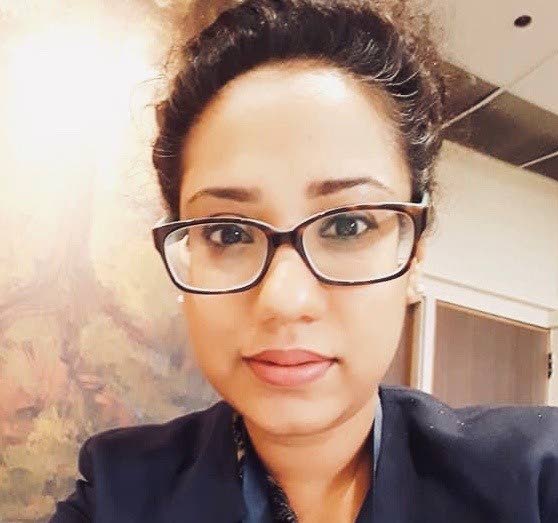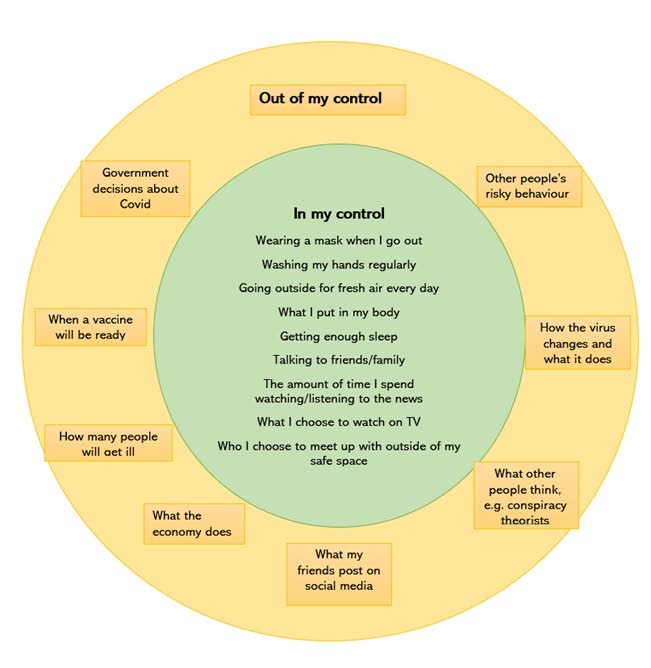Coronavirus anxiety

DR KRYSTAL-JANE VERASAMMY
OVER THE last few weeks, I’ve noticed that within my clinical practice people are seeking therapy for increasing amounts of anxiety. Yet, this is understandable. Each of us is dealing with the very real challenges of the widespread coronavirus pandemic.
Daily we are faced with social and community disruptions, financial problems, work-from-home adjustments and continuous interruptions to many aspects of life.
As humans, when we are faced with a crisis, fear and anxiety are inevitable. However, these are normal, natural responses to challenging situations infused with danger, uncertainty and unpredictability. It is certainly understandable that we innately succumb to feelings of panic and worry.
During this time, we may easily get lost in worrying and ruminating about everything and anything out of our control. We begin to create “worry chains” such as: What if I get sick? Will I be able to work? What if I infect a loved one? When will I be able to travel? When can I go to the beach? Will I be able to leave, or even return to my country? And so on.
While it may be completely natural for us to get lost in such worries, we need to ask ourselves: is this useful or helpful? Indeed, the more we focus on what’s not in our control, the more helpless, hopeless, anxious and stressed we become.

As a psychologist, who has been working with clients who experience coronavirus anxiety since March, I would like to share a therapeutic technique that clients have reported as extremely helpful. Anyone can practise it in any type of crisis, coronavirus or otherwise. It is to focus on what’s in your control.
Easier said than done, but the first step is to identify what is within our control verses what isn’t. It is simple yet effective as clients have reported that they feel hopeful, optimistic and empowered. Hence it promotes psychological flexibility and increases autonomy and resilience to cope with unprecedential times or the “new normal.”
Out of my control
When we focus on things out of our control, such as other people’s risky behaviour, the Government’s decisions about covid19 restrictions, when a vaccine will be ready, how it will affect the economy, we begin to feel overwhelmed, powerless and a sense of despair. Worrying about issues outside of our control comes with a psychological cost that may be detrimental to our mental and emotional well-being.
In my control
Instead, we can practise focusing on the things that we have control over. In doing so, clients have reported that they feel more secure of themselves and less at the mercy of external circumstances. Note that you may not be able to magically control your feelings and you must remember that fear and anxiety are natural and innate. However, you can control your behaviour, that is, what you do in the here-and-now.
The here-and-now
Focusing on the here-and-now can make a huge difference to yourself, and anyone living with you, as well as to the community around you. To respond effectively to your coronavirus anxiety, it is absolutely essential to take control of your behaviour – right here and now – in each given moment. Note that I emphasise control over human behaviour, as the reality is, based on my clinical experience, that it is easier to control our behaviours as opposed to control our thoughts and feelings.
This is because, in most instances, we are less aware or cognisant of our thoughts and have difficulties with emotion identification and emotional regulation. Counselling and psychotherapy are recommended to develop the skills to effectively manage our thoughts and feelings.
However, some of the behavioural aspects within our control are:
* Wearing our masks when we go out
* Washing our hands regularly
* Limiting the amount of time we spend watching/listening to the news
* Getting enough sleep
* What we put into our bodies
* Talking to friends/family
The visual image is to help you identify the things that you have control over and the things that you don’t. You can apply it to any situations or relationships that make you feel anxious and overwhelmed. This example is related to covid19.
In the inner circle, you can write all the things that are within your control in your current situation, and in the outer circle all the things beyond your control. Try to think of all the factors within your control that perhaps you had previously overlooked. Write them down no matter how small or seemingly insignificant. Once you have your two circles completed, give yourself permission to stop worrying about the things you can’t control and focus on the things you can. I assure you that you will feel a sense of relief and, possibly, hopeful.
Dr Krystal-Jane Verasammy holds a professional doctorate in counselling psychology from the University of Roehampton, London. Her e-mail is: therapeuticspaces2019


Comments
"Coronavirus anxiety"